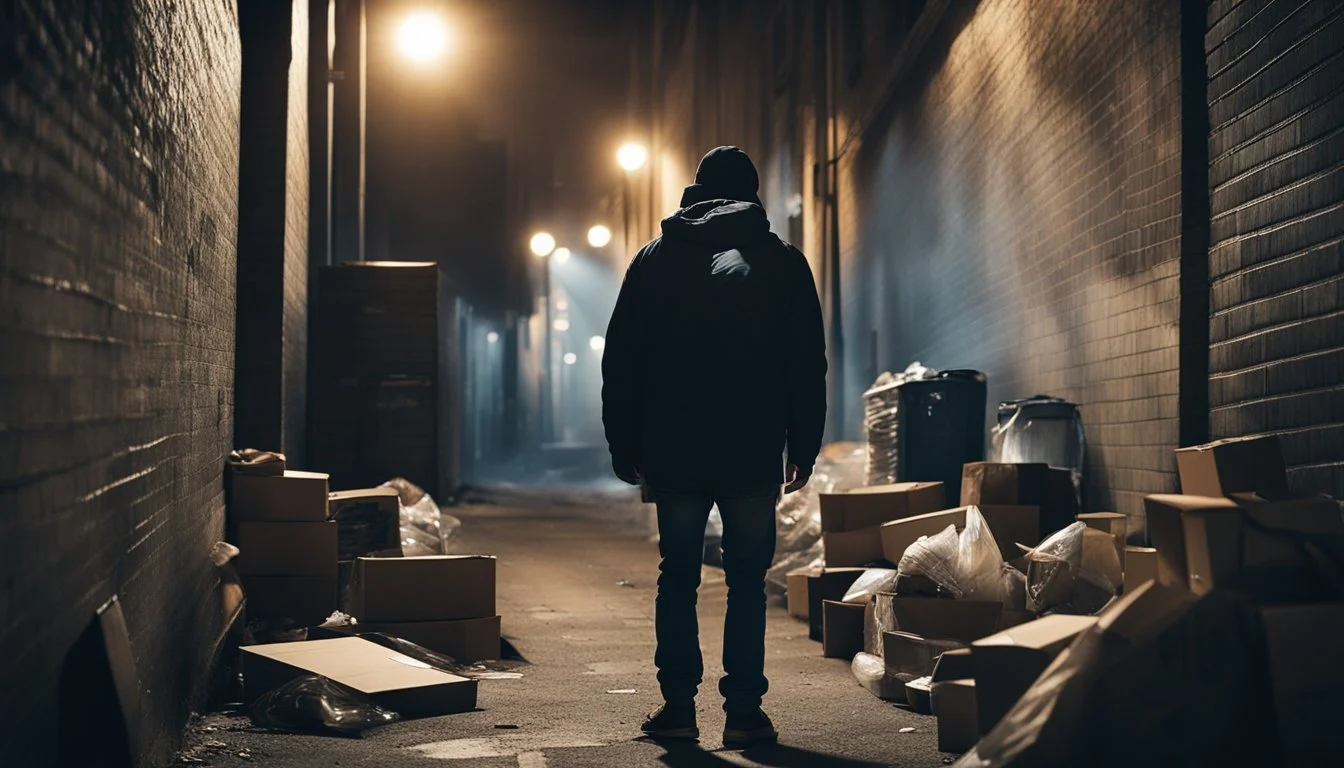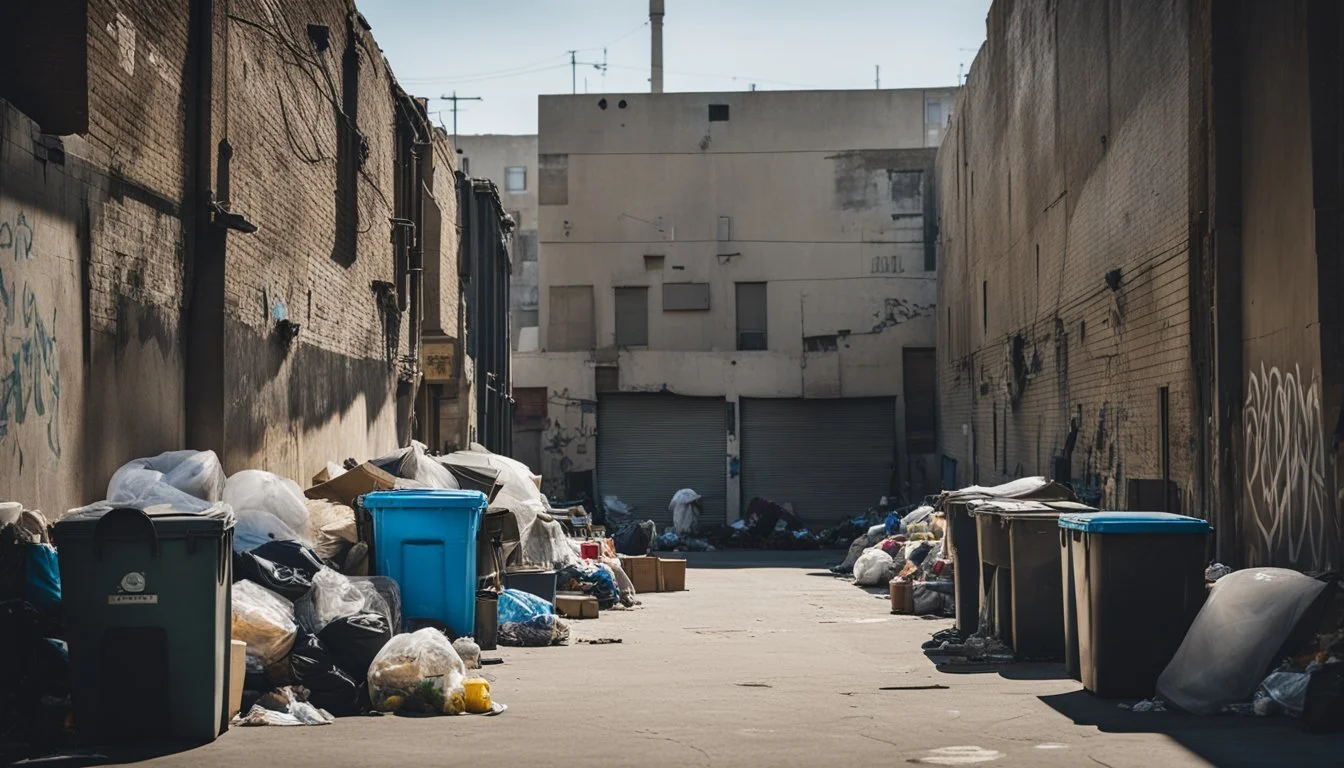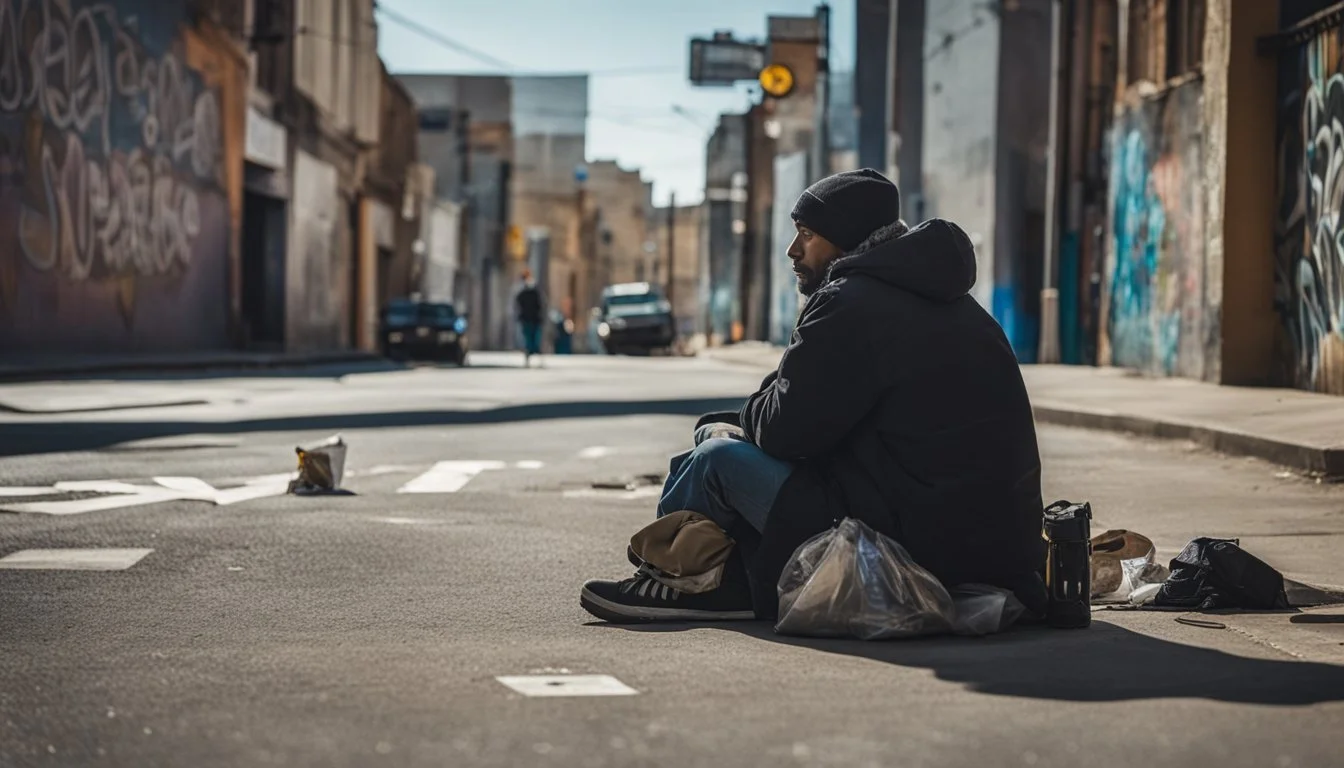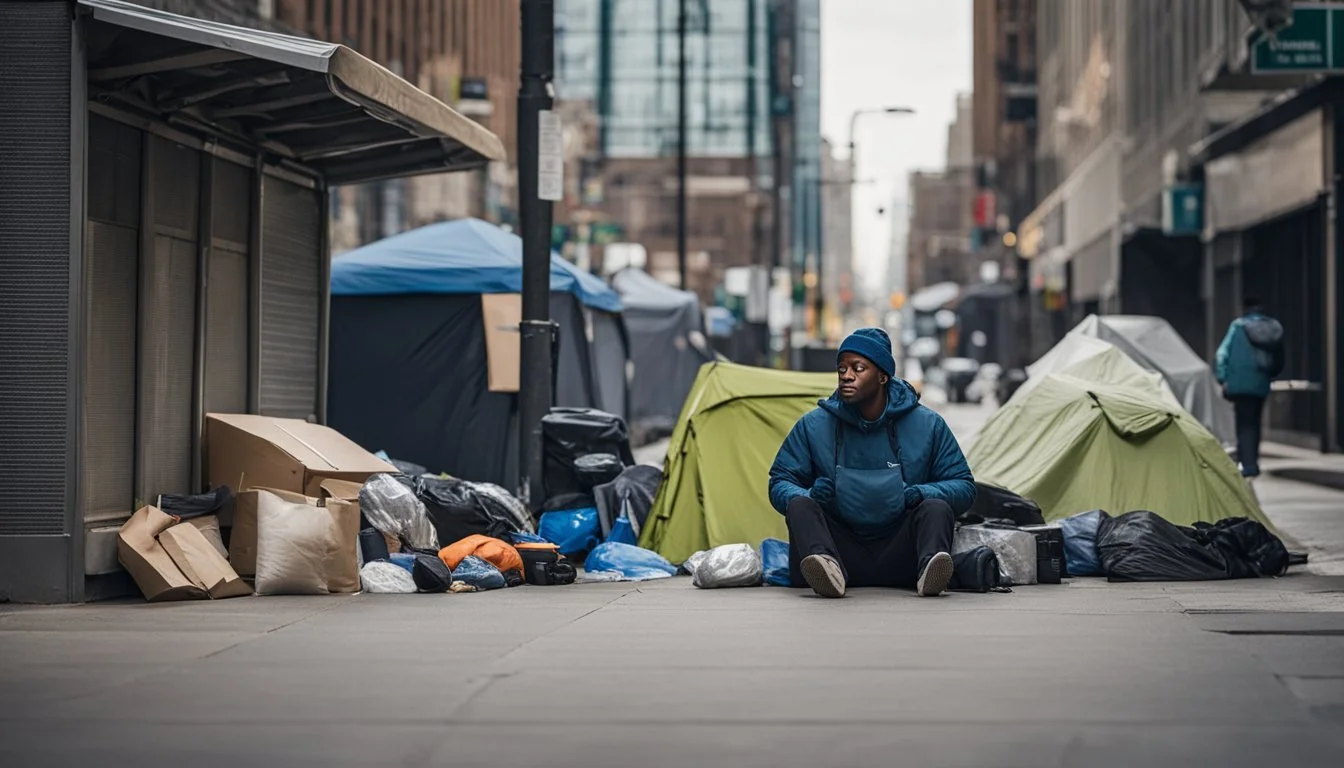8 True Crime Documentaries About Homeless Individuals
Stories from the Streets
True crime documentaries have a unique way of shedding light on the darker corners of society, providing not only gripping narratives but also critical insights into pressing social issues. When these documentaries focus on homeless individuals, they reveal a whole new layer of complexity and vulnerability surrounding crime and survival on the streets.
Exploring true crime stories involving homeless individuals brings to the forefront the intersection of homelessness and the criminal justice system. These documentaries do more than recount criminal acts; they offer a poignant look into the lives of those who are often overlooked and marginalized. Through these stories, viewers gain a deeper appreciation of the systemic struggles faced by homeless communities.
1) Dark Days by Marc Singer (2000)
"Dark Days," directed by Marc Singer, provides a compelling and bleak look into the lives of homeless individuals living in the underground Freedom Tunnel of New York City's Amtrak system.
Completed and released in 2000, the film was shot during the mid-1990s and offers viewers raw and intimate perspectives on the day-to-day struggles of its subjects.
Singer, who moved to Manhattan and befriended many of the city's homeless population, captures their experiences with authenticity and empathy. The documentary paints a poignant picture of human resilience amid extreme adversity.
The music, created by DJ Shadow, adds a haunting yet captivating layer to the narrative, enhancing the film's overall impact.
For anyone interested in a profound exploration of urban homelessness, "Dark Days" stands out as a must-watch documentary.
2) Lost Angels: Skid Row Is My Home (2010)
"Lost Angels: Skid Row Is My Home" is a revealing documentary directed by Thomas Napper. The film is narrated by Catherine Keener.
The focus is on eight individuals who have made their lives on the streets of Los Angeles' Skid Row.
Each person's story sheds light on their struggles and resilience within a community facing harsh realities.
The documentary explores the impact of gentrification on these homeless individuals.
Viewers get an intimate look at how they navigate daily challenges and strive for dignity amidst adversity.
The film offers a humanistic portrayal of a marginalized group often overlooked by society.
For more information, check out IMDb.
3) One Step from the Edge
"One Step from the Edge" (2020) is a gripping true crime documentary that shines a light on the precarious lives of homeless individuals entangled in criminal activities.
The film delves into the struggles faced by those living on the streets, who often find themselves a step away from further danger and exploitation.
This documentary highlights real-life stories, including instances where vulnerable homeless individuals become victims of gruesome crimes or are driven to commit desperate acts for survival.
It creates a stark portrayal of how society's marginalization can push people to the brink.
The visuals and interviews bring an unsettling realism to the viewers, ensuring they grasp the gravity of the situations depicted.
By focusing on personal narratives, "One Step from the Edge" effectively humanizes the statistics on homelessness and crime.
For more information, visit the IMDB page: One Step from the Edge (2020) on IMDb.
4) The Homeless Experience
The homeless experience is often documented to shed light on the harsh realities faced by individuals living on the streets. These true crime documentaries focus on the unique challenges and survival strategies of homeless individuals.
The Waiting Room (2012) profiles a single location, the waiting room of a homeless shelter, highlighting the daily struggles of those seeking temporary refuge. It captures the essence of the shelter environment as a reflection of broader societal issues. IMDb
Surviving Homelessness (2023) features Paul Suggitt, who voluntarily became homeless to document the raw and unfiltered experiences of living on the streets. The film dives into the violence and personal battles encountered daily by homeless individuals. IMDb
Lost in America (2018) directed by Rotimi Rainwater, delves into youth homelessness in the United States. Rainwater, who has personal experience with homelessness, provides a poignant narrative supported by interviews with homeless youth. IMDb
Kicking It (2008) follows six homeless individuals who participate in the Homeless World Cup. The film not only focuses on their passion for soccer but also on their personal stories and struggles to overcome homelessness. IMDb
5) Without a Roof (2013)
"Without a Roof" is a raw 30-minute documentary that captures the real-life stories and experiences of homeless individuals living in downtown Toronto. The film offers an unfiltered look at the daily challenges faced by those without permanent housing.
Debuting on December 14th, 2013, the documentary was successfully marketed to Rogers TV, which has over 2.3 million cable subscribers. The broad reach of the broadcast helped bring the issue of homelessness to a wider audience.
The film was produced by Arjun Birdi Photography and a dedicated team who aimed to shed light on the human aspect of homelessness. Through personal interviews and powerful storytelling, it provides a poignant perspective on a pressing social issue.
"Without a Roof" is notable for its emotional depth and the authenticity of its subjects' voices. It serves as an important work for understanding the complexities and human cost of homelessness in a major urban center.
More information on "Without a Roof"
6) Invisible People (2020)
"Invisible People" is a revealing documentary series that highlights the struggles of homeless individuals across the United States.
The series was created by Mark Horvath, who has personal experience with homelessness and addiction. His own journey from a successful television career to homelessness provided the impetus for this impactful project.
Through first-person interviews and stark storytelling, "Invisible People" captures the realities of life on the streets. The series not only aims to shed light on the harsh conditions faced by homeless individuals but also challenges the misconceptions and prejudices commonly held by the public.
One episode of notable mention, “Displaced: When Surviving Homelessness Is A Crime,” focuses on Ray, a homeless veteran in Columbia, Missouri. It highlights how new state laws criminalize homelessness, further marginalizing those who are already vulnerable.
Horvath’s approach leverages video storytelling to foster empathy and encourage public discourse about homelessness. The series has gained recognition for its authentic and unfiltered portrayal of this pressing social issue, striving to bring about change through education and advocacy.
7) Under the Bridge: The Criminalization of Homelessness (2017)
"Under the Bridge: The Criminalization of Homelessness" highlights a summer in Indianapolis, focusing on a tent city under a bridge. Directed by Don Sawyer, the documentary reveals how the city's homeless population faces criminalization.
The film portrays Maurice, the unofficial "mayor" of the camp. With his long graying beard and dreadlocks, Maurice abandoned his former life to live on the streets.
Viewers witness the struggles of the Indianapolis homeless camp as it faces closure by city authorities. The narrative dives into the broader issue of how homelessness is managed and often punished in the United States.
Exploring themes of community and survival, the documentary sheds light on the human stories behind homelessness. It invites viewers to consider the societal structures that contribute to this ongoing issue.
For more information on the film, visit the IMDb page.
8) Tent City, U.S.A. (2012)
"Tent City, U.S.A." provides a stark look at the lives of homeless individuals living in tent camps. The documentary is set in Nashville, Tennessee, where a growing number of people find themselves without permanent housing. Directed by Steven Cantor, the film examines the complex issues these individuals face daily.
The community within these tent cities is often self-sustained and self-governed. "Tent City, U.S.A." showcases how residents create their own rules and systems to maintain some semblance of order. The film brings attention to the pressing issues of homelessness, poverty, and addiction.
Produced by KGW’s investigative team, "Tent City, U.S.A." dives deep into the reasons behind the proliferation of tent camps. It illustrates how lack of affordable housing and economic instability contribute to this growing problem.
For more about the film, visit IMDb.
Understanding Homelessness
Homelessness is a multifaceted issue influenced by a range of factors, impacting the daily lives of individuals in profound ways.
Causes of Homelessness
Various factors contribute to homelessness, including economic challenges, mental health issues, and lack of affordable housing. Job loss and insufficient income can make it impossible for people to pay rent or mortgages, leading them to lose their homes.
Mental illness and substance abuse are significant factors as well, as individuals may struggle to maintain employment or relationships, exacerbating their inability to secure stable housing. Additionally, systemic issues like the unavailability of affordable housing options in urban areas force many into homelessness.
Moreover, familial breakdowns, domestic violence, and institutional failures, such as lack of support for veterans and former inmates, further contribute to this crisis.
The Daily Realities
Life on the streets presents daily challenges that most people never encounter. Homeless individuals often face constant uncertainty, danger, and a lack of basic necessities like food, hygiene, and medical care.
They also contend with exposure to harsh weather conditions and the threat of violence, both from other homeless individuals and external sources. Access to resources like shelters can be inconsistent, leaving many to sleep in unsafe environments.
Furthermore, navigating public spaces without social support can lead to feelings of isolation and despair. Even seemingly simple tasks, like finding a place to store belongings, pose significant hurdles, illustrating the pervasive and chronic struggle faced by homeless individuals daily.
Impact of True Crime on Society
True crime documentaries have gained prominence, significantly impacting societal awareness and public perception. These films and series offer glimpses into the realities of crime, influencing both individual outlooks and broader societal attitudes.
Raising Awareness
True crime documentaries play a crucial role in raising awareness about various issues. These films often highlight systemic flaws within the criminal justice system, bringing attention to wrongful convictions, police misconduct, and legal loopholes. Documentaries like "Making a Murderer" and HBO's "The Jinx" have prompted discussions around fairness and due process.
Widespread exposure through streaming platforms means these issues reach a broad audience. As a result, viewers become informed about aspects of crime they might not have considered previously. This increased awareness can lead to advocacy and support for reform, spurring changes in laws and practices.
Serious topics, such as homelessness intertwined with crime, also get highlighted. This intersectionality sheds light on how societal failures contribute to both homelessness and crime, advocating for more comprehensive approaches to these problems.
Public Perception
The portrayal of crime in media affects how the public perceives real-life criminal activity and justice. True crime documentaries often emphasize the investigative process, providing a dramatized yet educational view of crime-solving. This can create an informed yet sometimes skewed perception of crime rates and the efficacy of law enforcement.
Studies, like those from Purdue University, suggest that repeated exposure to on-screen violence can desensitize viewers, making them more tolerant of such acts in reality. Moreover, ethical concerns arise regarding the sensationalization of real-life tragedies for entertainment purposes.
Films addressing homelessness within true crime contexts can either humanize or stigmatize the issues. While some documentaries shed light on the struggles of homeless individuals, others may reinforce negative stereotypes, impacting public empathy and policy decisions. Balancing accurate representation with sensitivity remains a significant challenge for filmmakers in this genre.






